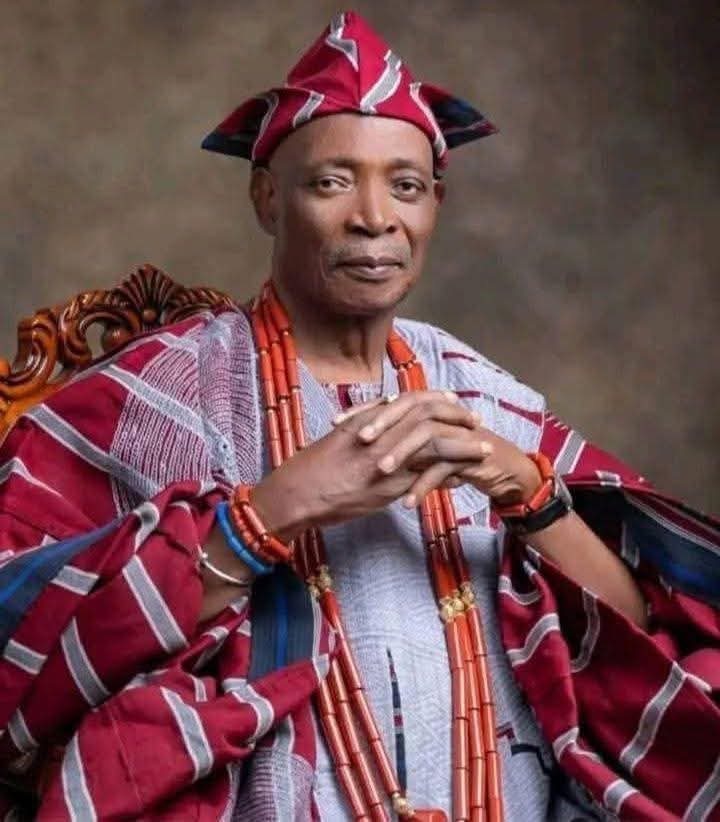Africa
OLUBADAN CORONATION: Despite Political Experience, Ladoja’s Ibadan State Agitation, Wrong Cause, Wrong Time -By Tunmise Ajeigbe
I can say every state in Nigeria owes its existence to military decree, not democratic consensus. For Ladoja to push the Ibadan agenda on the shoulders of a civilian president is to conflate two distinct eras. If anything, his plea should serve as a reminder that in democracy, the rule of law and due process—not sentimental appeals—determine what is possible. Ibadan’s greatness will not come from chasing shadows of state creation, but from embracing the responsibilities of democratic governance here and now.

The coronation of the Olubadan of Ibadan last Friday was expected to be a moment of unity, celebration, and cultural renewal for Ibadanland. Instead, the atmosphere was punctuated by the intervention of the newly enthroned monarch, a former Oyo State Governor, Oba Rashidi Ladoja, who used the occasion to call on President Bola Ahmed Tinubu to prioritize the creation of an Ibadan State. While this sentiment may resonate emotionally with some indigenes, it is an agitation pursued at the wrong time, through the wrong platform, and with an incorrect understanding of democratic process.
First, both Ladoja and Tinubu are seasoned politicians and former lawmakers. They understand more than most that state creation in Nigeria is not the sole responsibility of the executive arm of government. The 1999 Constitution clearly stipulates the multi-step process: approval by two-thirds of members of the State Assembly, endorsement by the National Assembly, and ratification by a national referendum before presidential assent. It is a cumbersome procedure, and deliberately so, because states cannot simply emerge on the basis of executive fiat or sentimental appeals. By directing his plea at Tinubu, Ladoja presents a misleading narrative to the public, as though state creation lies in the pocket of the presidency.
Second, the history of Ibadan’s agitation for statehood is neither new nor straightforward. Since the 1980s, indigenes have argued that Ibadan, given its size, cultural heritage, and economic importance, deserves recognition as a state of its own. Yet, every attempt has stalled, not necessarily for lack of merit, but because the procedure under civilian rule makes such demands almost impracticable. All 36 states of Nigeria today, from Ebonyi to Ekiti to Zamfara, were created under successive military regimes—leaders who could impose state boundaries by decree without consulting citizens. That reality explains why the civilian-era calls for new states have consistently failed: democracy, by design, resists unilateralism.
Third, Ladoja’s claim that the people of Ibadan “sent him” to make state creation his first task as their leader must be examined critically. While no doubt some indigenes share this desire, framing it as a communal mandate risks undermining democracy. Democracy thrives on procedures, rules, and inclusivity—not on personalized claims or political shortcuts. By presenting state creation as a first job, Ibadan leaders risk setting expectations they cannot deliver within the present democratic framework. In truth, pressing economic, social, and security issues demand more immediate attention than a quest that history has shown to be unfeasible in a civilian dispensation.
Ultimately, Ibadan deserves recognition and progress, but progress is not synonymous with state creation. What Ibadan people need more urgently are policies that address unemployment, urban infrastructure, education, and the preservation of its unique culture. The agitation for Ibadan State, however noble in intent, is misplaced in timing and execution. It glosses over constitutional reality, distracts from pressing developmental needs, and inadvertently portrays democracy as a system where outcomes can be dictated by elite bargains rather than institutional procedure.
I can say every state in Nigeria owes its existence to military decree, not democratic consensus. For Ladoja to push the Ibadan agenda on the shoulders of a civilian president is to conflate two distinct eras. If anything, his plea should serve as a reminder that in democracy, the rule of law and due process—not sentimental appeals—determine what is possible. Ibadan’s greatness will not come from chasing shadows of state creation, but from embracing the responsibilities of democratic governance here and now.
As a former senator and an experienced politician like Oba Ladoja, appealing publicly to the president for an Ibadan State creation generate an impression of misplaced priority, and further buttresses the point that Nigeria seems like a banana republic where people can get what they admire through back door, neglecting due process. Lawmaking business drives lawmakers closer to be friends with Nigerian constitution. So, it is expected that Oba Ladoja should know better.
In the 1999 Constitution, the provisions on creation of new states are found mainly in section 8 subsection 1–6, this section lays out the procedure for creating new states not for an imperial authority to give false hope.

























